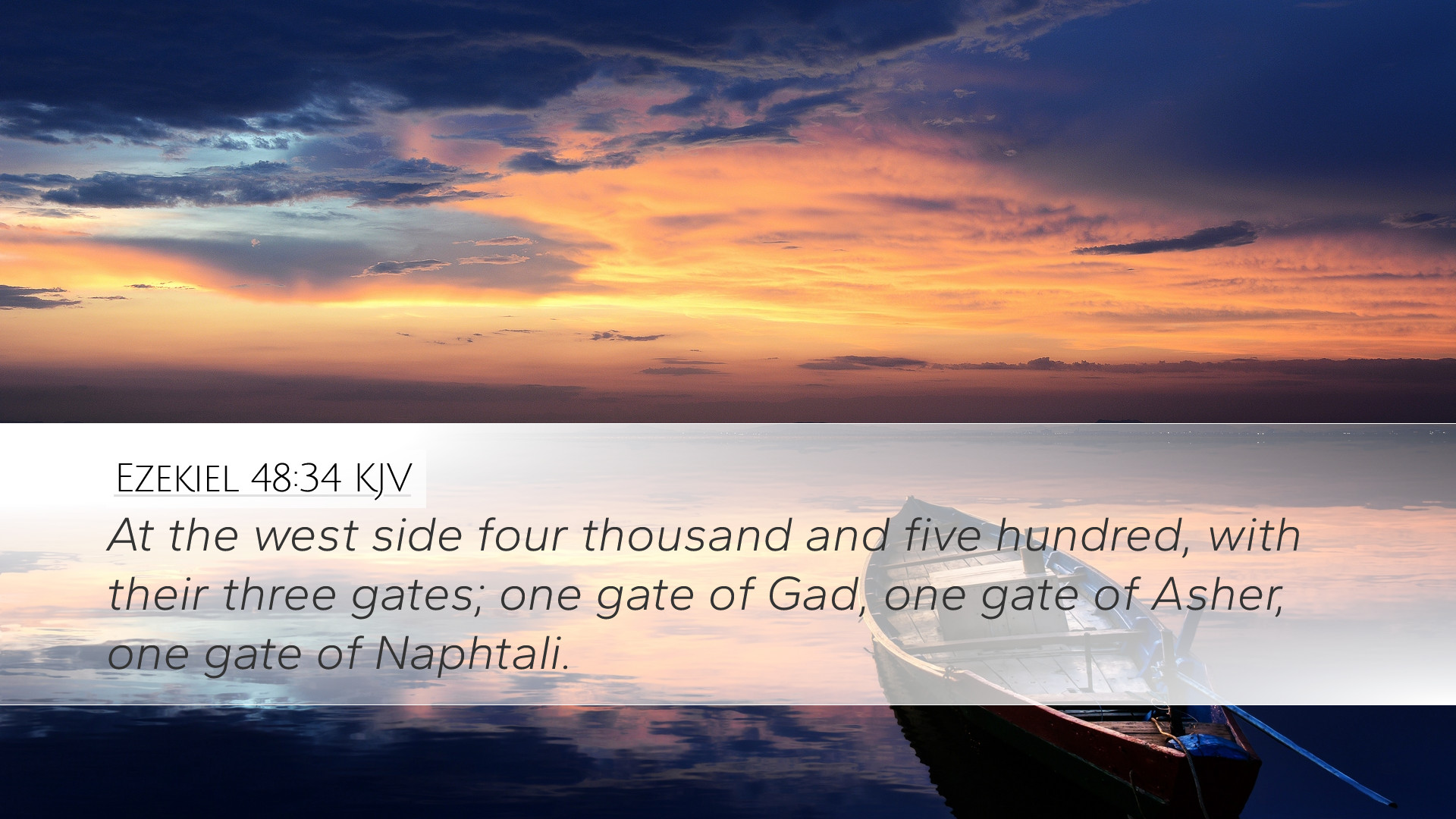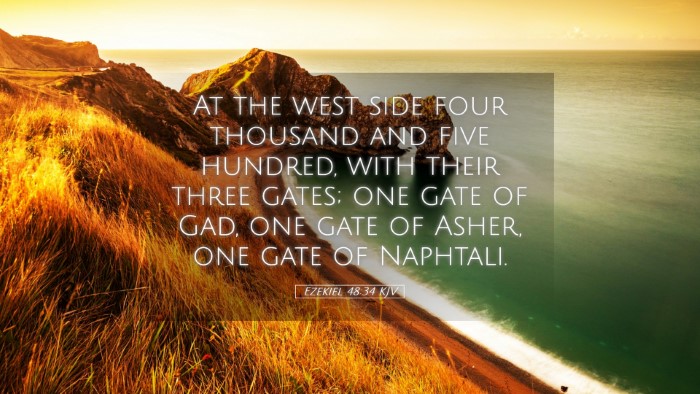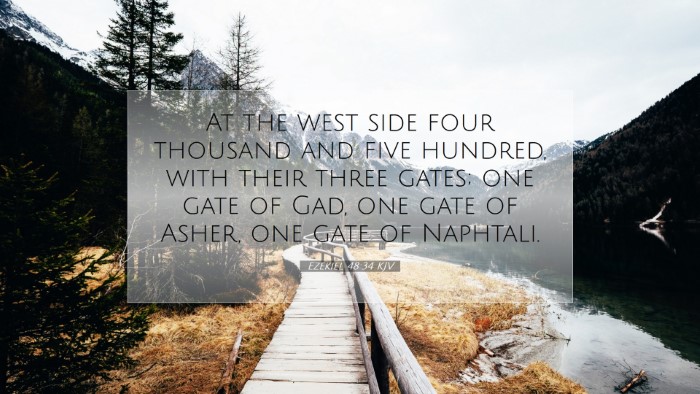Ezekiel 48:34 Commentary
Ezekiel 48:34 states:
"And the rest of the length that is over against the holy portion shall be ten thousand eastward, and ten thousand westward; and it shall be over against the oblation of the holy portion; and the produce thereof shall be for food to them that serve the city."
Overview
In this verse, the prophet Ezekiel continues his detailed description of the land that will be apportioned to the tribes of Israel after their return from exile. The final allocations emphasize the centrality of the holy city and its sacrifices, highlighting the importance of the priestly functions and the sustenance required for those who serve in the temple.
Contextual Significance
Understanding the context of this chapter is vital for interpreting Ezekiel 48:34. The vision describes the idealized future of Israel after the Babylonian exile. The prophet outlines the division of land among the tribes of Israel, focusing on the central role of the holy portion dedicated to the Lord.
The Holy Portion
The "holy portion" referred to in the verse constitutes a distinct area set apart for the priests and Levites. This land not only serves a physical purpose but also symbolizes the spiritual and covenantal relationship between God and the Israelite community.
Theological Insights
-
The Central Role of the Temple:
According to Albert Barnes, the arrangement of the land emphasizes the importance of the sanctuary, both in a physical and spiritual sense. The temple represented the dwelling place of God amidst His people, underscoring His desire to be close to them.
-
Provision for the Priests:
Matthew Henry notes that God's provision for the priests and those who served in the temple was vital for maintaining the worship and sacrificial system. The land generated produce that would nourish the priests, reflecting God’s care for those who serve Him.
-
Symbolism of Bread:
Adam Clarke delves into the significance of food being provided for those serving the city. In the biblical narrative, bread often symbolizes life and sustenance. Here, it serves as a reminder of the sustenance God provides not only for the physical needs of His servants but also for their spiritual well-being.
Historical Context
During Ezekiel's time, the exiles were struggling to maintain their identity and faith far from their homeland. The vision of a restored land and the reinstatement of worship was a profound source of hope. This allocation delineates their new relationship with the land and with God.
Reinforced Identity
The description of the land allocations and the holy portion functions as a reintegration of Jewish identity. The careful planning and assignment signify a return to divine order, allowing the people to reclaim their heritage and purpose under God’s covenant.
Application for Today
This passage holds value not only for historical understanding but also for contemporary application. The themes of God's provision, the sanctity of worship, and the communal organization of resources resonate deeply today.
The Role of the Church
Like the priests in Ezekiel's time, church leaders today are tasked with serving their communities. The church must ensure that the spiritual needs of its leaders and members are met, much like the provision for the Levites in ancient Israel.
Community and Service
The principle of communal responsibility—ensuring that those who serve are supported—remains relevant. In caring for church leaders, congregations live out the biblical mandate to support one another, fostering an environment where spiritual life can flourish.
Conclusion
Ezekiel 48:34 offers profound insights into the relationship between God, His people, and the structure of their community. By recognizing the significance of provision, worship, and service, readers are reminded of the ongoing relevance of these themes in their own lives and communities today.


